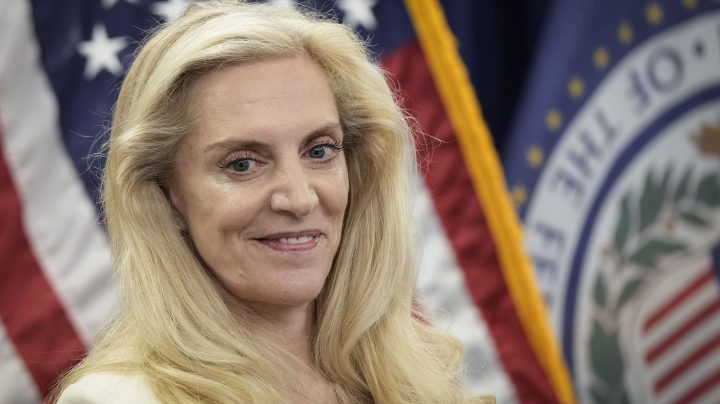
The Fed’s Lael Brainard is leaving monetary policy for fiscal policy
The Fed’s Lael Brainard is leaving monetary policy for fiscal policy

It can be hard to keep monetary and fiscal policy straight. Both sound vaguely money-ish.
Etymology helps. “Fiscal” comes from the Latin word “fiscus,” which means basket. Back in ancient Rome, the government collected and stored taxpayers’ money in baskets.
“When you hear fiscal policy, think: the tough, value-laden decisions that our politicians must make about public money,” said Peter Conti-Brown, professor of financial history and regulation at the University of Pennsylvania’s Wharton School.
So when to pull money out of the basket and spend it, or when to put more in there by taxing.
Meanwhile, “monetary policy is about the value of that money,” Conti-Brown said. That includes raising or lowering interest rates to change money’s value. That’s the job of the Federal Reserve.
So what if someone moves from making monetary policy to making fiscal policy?
“It’s not uncommon, but it’s not common,” said Harvey Rosenblum, who worked for the Federal Reserve for more than four decades.
It’s happening now: The vice chair of the Federal Reserve, economist Lael Brainard, will be the next director of the National Economic Council, the White House announced Tuesday. That means she’ll move from setting interest rates to setting the economic agenda for the Joe Biden administration. In other words: switching from monetary policy to fiscal policy.
At the Fed, everyone speaks the same language, Rosenblum said. But at the White House or in Congress, you’ve got “hundreds of dialects that you’re trying to understand about where people are coming from. They’re driven by ideology. In monetary policy, people are driven by the data.”
And the jobs involve different skill sets. For example, in fiscal policy, it helps to be persuasive.
“You have to listen carefully to other people’s ideas, or at least give the impression that you’re listening, and you are empathetic,” Rosenblum said. “In monetary policy, you can get away without being any of the above.”
At the Federal Reserve, the main job is to keep the economy steady, according to Stanford University economics professor John Taylor.
“The person who moves from the Fed to the White House has more information about that than most people,” he said.
And it takes a versatile person to be able to make that journey, said David Wilcox, who works for the Peterson Institute for International Economics and Bloomberg Economics, and who used to work for the Fed.
“One recent example is Janet Yellen, who is the only individual in history to have served in the three top economic policy jobs,” Wilcox said.
Yellen has led the Council of Economic Advisers (fiscal policy), the Federal Reserve Board (monetary policy), and she’s now the Treasury secretary (fiscal policy).
“Policymakers across the government are focused on getting inflation back down to the Fed’s 2% objective, first and foremost. Of course, that’s the responsibility of the Federal Reserve,” Wilcox said. “The job of the rest of government, for the most part, is to stay out of the way.”
Still, Peter Conti-Brown of Wharton cautions against having too many Fed alum in the White House.
“Will we get a diversified set of views to the president that isn’t just reflecting whatever the Fed wants to be done?” he said.
Sometimes central bankers fall into a rhythm of groupthink, Conti-Brown warns, which doesn’t always lead to good policy decisions.
There’s a lot happening in the world. Through it all, Marketplace is here for you.
You rely on Marketplace to break down the world’s events and tell you how it affects you in a fact-based, approachable way. We rely on your financial support to keep making that possible.
Your donation today powers the independent journalism that you rely on. For just $5/month, you can help sustain Marketplace so we can keep reporting on the things that matter to you.

















